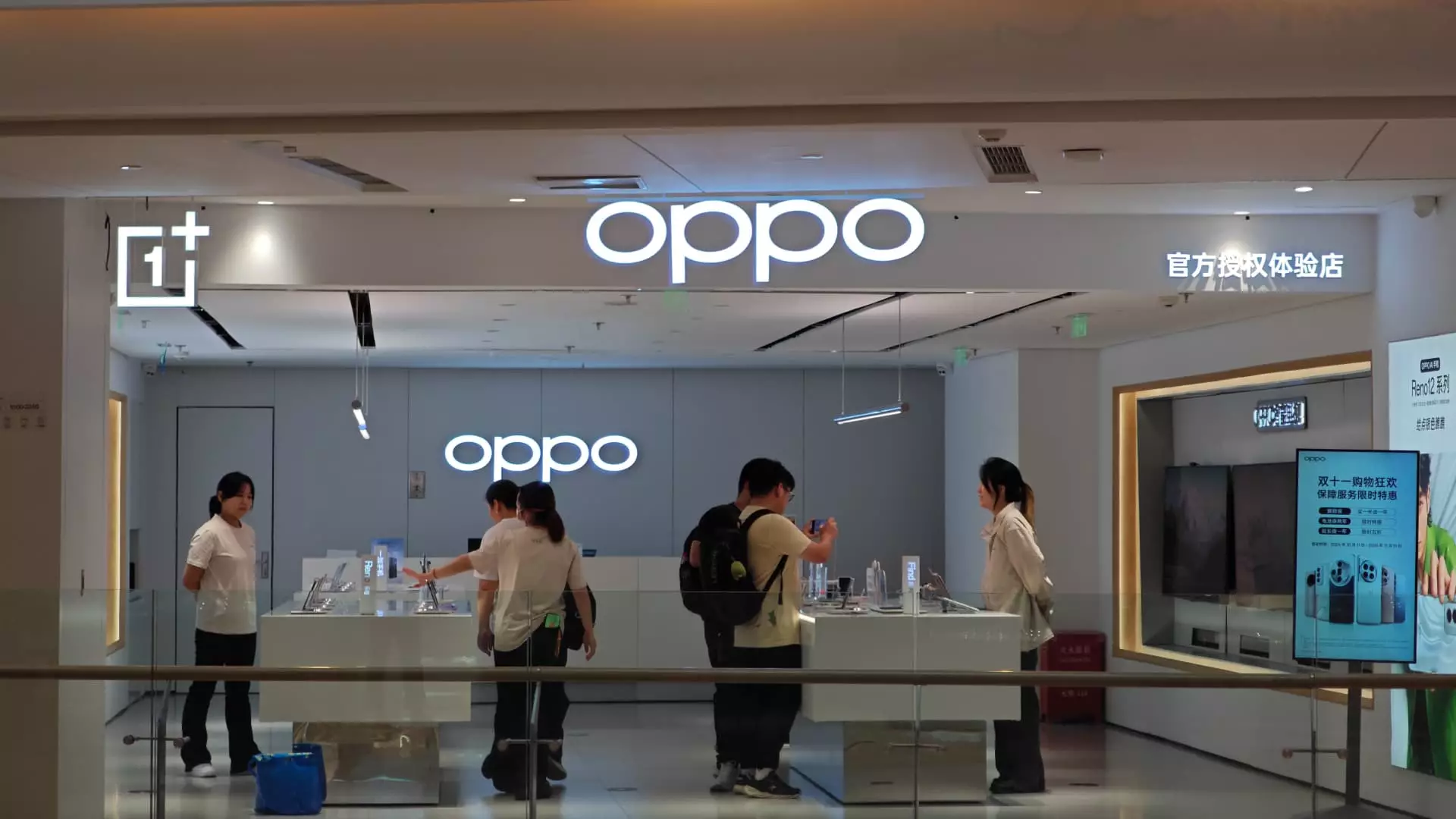As the global smartphone market becomes increasingly saturated, innovation through artificial intelligence (AI) has emerged as a pivotal strategy for companies looking to carve out their niche. Chinese smartphone manufacturer Oppo is notably positioning itself at the forefront of this AI revolution. With ongoing collaborations with major tech entities like Google and Microsoft, Oppo aims to integrate cutting-edge AI technologies into its flagship smartphones, thus enhancing user experience and operational efficiency.
Billy Zhang, president of Oppo’s sales and services division for international markets, articulated the company’s mission at a recent media briefing in Shenzhen. He emphasized that stakeholders, including Google, engage in regular discussions with the company to identify consumer needs and pain points. This collaborative approach is poised to address user feedback more effectively and ensures that Oppo’s solutions are tailored to the market’s demands. Notably, Zhang revealed that 60% of Oppo’s revenue emanates from international markets, indicating a strong reliance on overseas sales, particularly in Southeast Asia and Europe.
This strategic pivot toward AI is not just a trend; it reflects a broader industry acknowledgment that generative AI technologies—capable of producing human-like responses and functions—hold tremendous potential in reshaping consumer interactions with smart devices. Indeed, while leading the charge in AI capabilities, U.S. firms face geopolitical hurdles that may provide Chinese companies like Oppo with unique advantages in consumer applications.
Innovative Features and Collaborations
Anticipation continues to build around Oppo’s upcoming flagship smartphone, particularly regarding its integration of advanced AI-driven features. The device is set to incorporate AI writing and summarization tools powered by Google’s Gemini, alongside content generation functionalities developed in collaboration with Microsoft, which uses OpenAI’s renowned offerings like ChatGPT. Zhang has not disclosed the exact extent to which past models utilize similar technologies, but the company is committed to launching devices that integrate significant AI advancements, aiming to solidify its competitive edge.
Looking further into the future, Oppo’s aspirations extend beyond mere consumer electronics. The company has committed to integrating generative AI into an impressive 50 million devices within the year. Current applications in existing smartphones feature enhancements such as intelligent photo editing—removing window reflections and touch-ups. Furthermore, the establishment of an in-house AI development team in 2020 and the opening of a dedicated AI center in February showcase Oppo’s investment in research and innovation dedicated to AI.
Oppo’s commitment to mobilizing AI extends into its manufacturing processes, reflecting a trend toward digitalization and automation. By replacing approximately 8% of its workforce with machines on production lines in Dongguan, Oppo is prompting employees to shift toward more sophisticated tasks in the production of high-end devices. This transformation enables the company to improve operational stability and reduce production costs by nearly 40% over the past three years.
Danny Du, the director of manufacturing management at Oppo, conveyed that the technological integration in factories has not only improved efficiency but reduced production timelines from 16 days to a mere 6 days. This acceleration allows the company to respond to market demand more promptly and effectively, mitigating risks associated with unsold inventory.
In addition to its progress in manufacturing, Oppo is keen on extending its digital management system to factories across seven nations, starting with India and Indonesia. This targeted strategy not only optimizes production capabilities but also prepares the company for further international market penetration.
Industry forecasts suggest that the global market for generative AI smartphones will witness exponential growth, surging from merely 46 million shipments last year to an anticipated 732 million by 2028. The expectation of widespread adoption underscores the pivotal role that AI is destined to play in the future of technology.
As competitors in the market, such as Apple and Honor, prepare to unveil their AI features, Oppo’s strategic focus on generative AI reflects a comprehensive understanding of consumer expectations. The upcoming software updates from Apple, including photo element removal and ChatGPT integration, signal a competitive landscape where companies must continuously innovate to capture consumer interest.
Oppo’s deep commitment to artificial intelligence, characterized by strategic collaborations with tech giants and transformative manufacturing processes, positions it favorably in an ever-changing market landscape. As the demand for innovative technologies grows, Oppo’s ability to effectively harness AI capabilities will likely determine its success as a formidable player in the global smartphone arena—marking the beginning of a new era in smart technology.

Leave a Reply